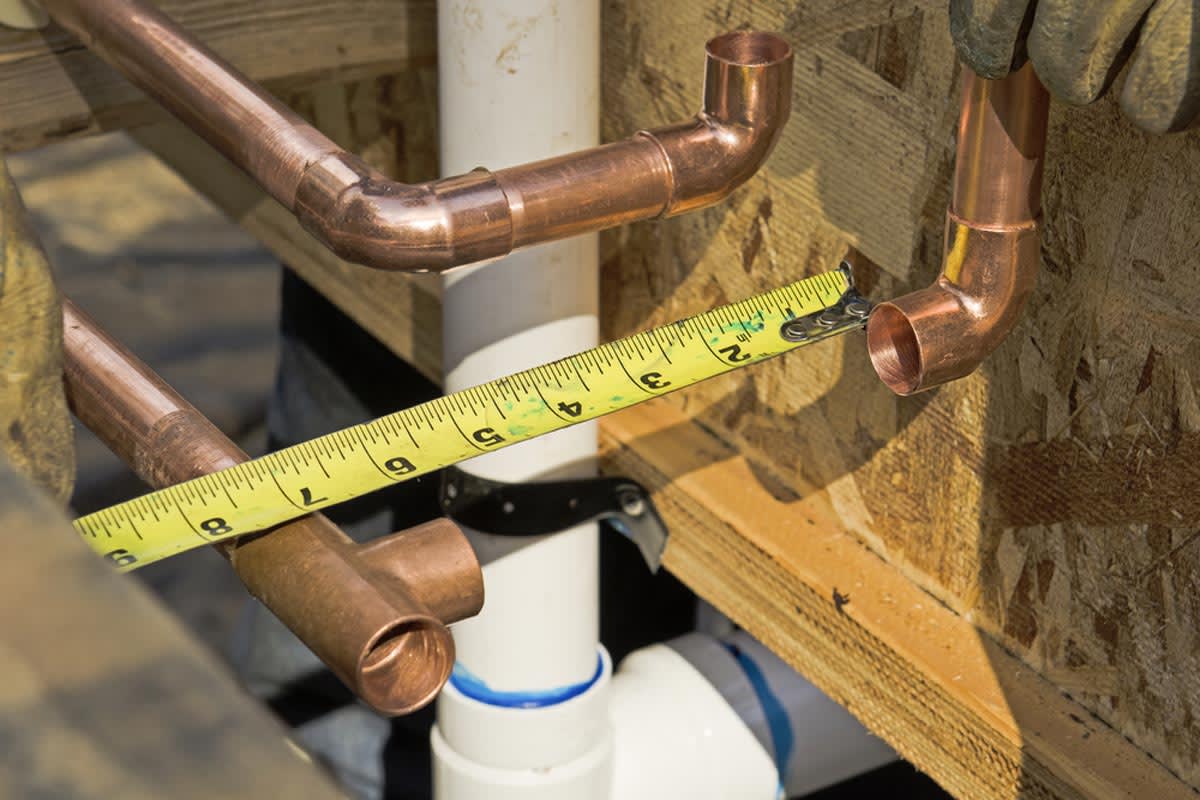Essential Bathroom Plumbing Insights for First-Time Homeowners
Essential Bathroom Plumbing Insights for First-Time Homeowners
Blog Article
This article listed below on the subject of 11 Must-Read Tips for Plumbing a New House is immensely intriguing. Check it out yourself and decide what you think of it.

For new property owners, understanding and preserving shower room plumbing can save both money and time by preventing pricey concerns down the line. Here are some important restroom plumbing pointers to help you keep every little thing running smoothly.
Familiarize Yourself with the Main Shut-Off Valve
Recognizing where the major water shut-off valve lies in your house is crucial. This allows you to rapidly turn off the supply of water in case of significant leaks or during plumbing emergencies, protecting against considerable water damages.
On A Regular Basis Evaluate for Leakages
Little leaks can bring about huge troubles. Regularly examine under sinks, around bathrooms, and near pipes components for any type of signs of leakages. Search for wetness, little drips, or rust. Capturing and repairing leaks early can protect against a lot more serious damage and save water.
Don't Overlook Slow Drains
If your sink or tub is draining pipes gradually, it's typically an indication of a blockage creating. Resolving this early can prevent a full clog. Use a bettor or a plumbing technician's snake to clear out debris. Stay clear of using chemical drainpipe cleansers as they can damage your pipes over time.
Know What Not to Flush
Toilets are not waste disposal unit. Avoid flushing anything aside from toilet tissue and human waste. Things like wipes, womanly health products, and cotton bud must be disposed of in the trash to stop obstructions and drain backups.
Install Strainers in Drains
Area strainers in your sink and bathtub drains pipes to capture hair and other particles prior to they enter your plumbing system. Cleaning the filters frequently will assist protect against buildup and keep water flowing easily.
Maintain Your Hot Water Heater
Ensure your water heater is set to an ideal temperature level (commonly around 120 levels Fahrenheit) to stop scalding and reduce power use. Flush the container yearly to remove sediment accumulation, which can decrease the effectiveness and life-span of your heater.
Update Your Components
If your home has older components, consider updating to extra efficient versions. Modern commodes, showerheads, and faucets are made to make use of less water while giving excellent stress, which can dramatically lower your water bill and environmental impact.
Be Cautious with Do It Yourself Pipes Fixes
While it's alluring to handle all home repair work by yourself, beware with plumbing. Some concerns could need specialist proficiency, specifically if they include primary water lines or drain repair services. Working with a specialist can sometimes be more economical than DIY, especially if it avoids further damage.
Get Ready For Winter
Shield your pipes from cold throughout winter by shielding pipes in unheated areas like basements, attics, and garages. Throughout extreme cool, let cold water drip from taps served by revealed pipes to assist protect against cold.
Schedule Normal Upkeep
Think about scheduling yearly assessments with a qualified plumbing technician. They can spot issues that you could miss out on, such as hidden leaks or deterioration on pipes and fixtures. Normal upkeep assists expand the life of your pipes system and can avoid emergencies.
Conclusion
Understanding and keeping your home's washroom plumbing can stop several common problems. By adhering to these crucial tips, you can ensure your shower room stays functional and reliable, saving you time and money in the long run.
Essential Plumbing Tips for Homeowners: Keep Your Pipes Flowing Smoothly
As a homeowner, understanding the basics of your plumbing system can save you time, money, and a lot of headaches. Plumbing issues can range from minor annoyances like dripping faucets to major problems like burst pipes that cause significant damage. This guide provides essential tips to help you maintain your plumbing system and tackle common issues.
Understanding Your Plumbing System
Supply System: Brings fresh water into your home from a municipal source or a well. Drain-Waste-Vent System: Removes wastewater and vents sewer gases outside. Fixtures and Appliances: Includes sinks, toilets, showers, dishwashers, and washing machines. Basic Maintenance Tips
Regular Inspections: Periodically check for leaks, corrosion, and other signs of wear and tear. Look under sinks, around toilets, and near water heaters. Know Your Main Shut-Off Valve: In case of a major leak, you’ll need to shut off the water quickly. Ensure everyone in your household knows where the main shut-off valve is located. Prevent Frozen Pipes: In cold climates, insulate exposed pipes and let faucets drip during extreme cold to prevent freezing. Use Strainers: Install strainers in sinks and tubs to catch hair, food particles, and other debris that can cause clogs. Common Plumbing Issues and Solutions
Clogged Drains:
Prevention: Avoid pouring grease down the drain and use drain screens to catch debris. DIY Fix: Use a plunger or a plumbing snake to clear minor clogs. For stubborn clogs, a mixture of baking soda and vinegar can sometimes help. Leaky Faucets:
Prevention: Replace washers and seals regularly. DIY Fix: Turn off the water supply, disassemble the faucet, and replace worn parts.

View Report this page